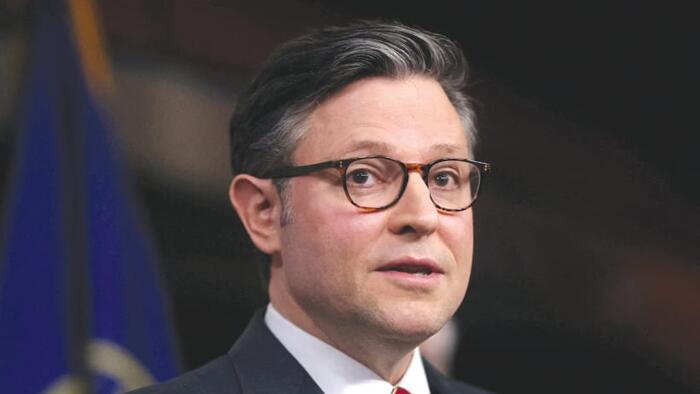In a significant legislative move, the House of Representatives has passed a new spending package, termed the American Relief Act of 2025, with a notable bipartisan majority, thanks to the support from Democrats. The final vote stood at 366 to 34, exceeding the two-thirds majority requirement for fast-tracked legislation. The bill now awaits Senate consideration, and President Biden has indicated his approval, emphasizing the necessity of sustaining government services critical to the welfare of Americans, such as Social Security and veteran benefits. Furthermore, the proposed legislation includes provisions for disaster relief, a crucial aspect given the havoc wreaked by recent hurricanes.
House Speaker Mike Johnson (R-La.) articulated the significance of the legislation, characterizing it as “America First” and pivotal for future government operations, particularly with the expectation of a Republican administration coming into power. Johnson expressed optimism about achieving a major transition in Washington’s political landscape, anticipating a more favorable environment following the inauguration of President Trump. In contrast, House Minority Leader Hakeem Jeffries (D-N.Y.) underscored the role of House Democrats in ensuring that government funding aligned with Biden’s requirements, reflecting a collaborative effort to advance the welfare of everyday citizens.
Despite the celebration of the bill’s passage, some members of the GOP, like Rep. Chip Roy (R-Texas), articulated concerns that additional challenges remained, emphasizing the urgent need for fiscal responsibility and reform upon assuming higher offices. Rep. Tom Cole (R-Okla.) expressed hope regarding the future of the Republican agenda, relishing the chance to wield control over both legislative chambers and the presidency. This is seen as a rare opportunity for the GOP to implement its policies without having to navigate continuous opposition from Democrats.
The dynamics surrounding this bill highlight a broader political tension within the Republican Party, particularly in the aftermath of a previous failed vote on an alternative spending proposal, which exposed fractures within the party ranks. The apparent lack of consensus among Republicans has fueled discussions about the upcoming debt ceiling and spending strategies. Speaker Johnson’s attempt to consolidate the spending bill into a singular proposal has raised questions, as some members suggested an alternative approach of voting on various issues separately, which could provide a clearer path to bipartisan support.
Amidst these legislative maneuvers, the approach toward government operations is marked by caution and anticipation of the upcoming political landscape. The discussions have indicated potential for alternative plans, including the possibility of extending a short-term continuing resolution (CR) to avoid immediate governmental shutdowns. Such an extension may reflect a strategic shift in response to the evident challenges of achieving a long-term agreement amid divided opinions within the Republican caucus.
As time-sensitive debates continue, the imminent need for bipartisan solutions remains critical to prevent an operational impasse in government functions. The strength of the newly passed bill underscores the appeal for collaboration between Democrats and Republicans, particularly in times of shared crises, such as natural disasters and economic uncertainties. The coming months will likely set the tone for the effectiveness of this cooperative spirit and the GOP’s capacity to navigate its internal complexities while forging paths for future legislation that addresses the pressing concerns of the American public.

